News
All Protocol(s) Observed By Reuben Abati
This means you can’t recognize a Member of a State House of Assembly before a Member of the House of Representatives, and you can’t “acknowledge the presence (as it were) of” a Minister before a Senator. Any slight mix up is likely to fetch you a reprimand and complaints about how you are such an insensitive compere who wants to ruin an event that had been so well planned. Getting the pecking social order right is not even enough, you must be politically correct when you deploy such egoistic phrases as Your Excellency, The Distinguished, The Most Honourable, Your Honour, Your Worship, My Lord, Your Grace, Your Eminence…Only God knows what these honorifics do to the Nigerian big man or big woman’s mind. When you get it right, you can see the person actually believing the myth about he or she being so excellent, distinguished or honourable. Some would even rise and wave to the crowd.
The institutionalized flattery involved, is of course not limited to the special guests, sorry special guests of honour (!) who occupy the high table, or the top table, or better still, the reserved table. Other guests also have to be introduced. The rule is never to overlook any important person. If it is a government or corporate event, nearly everybody is important. If certain persons are mistakenly overlooked, they would insist on sending their personal assistants to the compere to remind him or her of how a grave error has been committed. Some would send their business cards, or a note or summon the compere to their table to register not a complaint but a protest!
Indeed, being a master of ceremony at a Nigerian event could be the ultimate test of humility and human patience. I once introduced a certain VIP as Chief XYZ. I was summoned and reprimanded. “He is not a Chief, but a High Chief”, he said. Correction taken, apology offered. “It is now my pleasure to introduce once more High Chief XYZ, the whatever 1 of anywhere.” The man grinned cheerfully. His retinue of assistants applauded so loudly, you would think the event was all about him. There certainly must be something special about being a High Chief; ordinary Chiefs, I guess, must be less human. But consider this: on another occasion, I mistakenly referred to another VIP as a Chief. The man sent for me, and whispered into my ears: “next time you call me a Chief, I’ll sue you, only unserious people go about saying they are Chief this and Chief that. I have never taken a chieftaincy title in my life; I am simply Mister. You understand? ” Yes, sir!
Again, apologies tendered. I went back to the microphone to introduce the Mister properly, cleverly leaving out his anti-chieftaincy commentary. But how do you deal with royalty? Now that many Nigerians act and behave like Republicans, traditional rulers and the royalty have also learnt to leave the comfort of their palaces to hustle like other Nigerians on the streets, and so, you can’t miss royal presence at most events. But there is a challenge, acknowledging them. You have to know who is His Royal Highness or which traditional ruler is better addressed as His Royal Majesty.
To play safe, it is always advisable to refer to every traditional ruler as His Royal Majesty. It doesn’t matter if the man is a common village head. The word “Royal” is where the magic lies. Leave it out, and you’d have palace jesters rushing to you to insist you emphasize that special phrase. To get the protocol right, the titles of female guests of honour must also be properly mentioned, the problem is knowing who is what: Yeye, Erelu, Lolo, Alhaja, Hajia, Dame, Mrs, Miss or Ms. And there is at least one female VIP who objects to any young compere mentioning her first name: she says that is rude! “I am old enough to be your mum, and you know my dear, we are Africans!” Etiquette lesson taken: “Sorry Ma.” Not to talk of the Igwes. the Knights of numerous Saints, the Otunbas and holders of honorary degrees who insist on being addressed as “Dr.”
By the time a Nigerian compere struggles with these imposed standards, half of the time is wasted on absolutely unimportant niceties. And wait a minute, most of the guests would arrive late anyway and insist on being seated close to the high table, at a visible location, preferably in full view of the television cameras. Important guests like to be noticed; they want to appear on television and have their photographs taken by photojournalists who criss-cross the floor, blocking people’s view, blinding guests with camera flashes, thus constituting extra nuisance.
But the real notice-me tactic often adopted is when in the middle of a programme or a speech, some really self-important guest arrives noisily and holds everything up, making a song and a dance, sashaying across the hall. The compere is expected to suspend the programme and massage the ego of the latecomer: “Announcing the arrival of….” I imagine it is precisely because of this elevation of bad conduct into a side event, that nobody is allowed to arrive late at any event where the President of Nigeria is already seated. The security people will not allow such breach of protocol. And if anyone at all must be allowed in, he or she would have to sneak in quietly and no official compere would dare announce such rude arrival. That is another delicate protocol matter, though.
Then, the speeches: no event is complete without speeches and do Nigerians love to make speeches? Oh yes. Most of the time, many of the speeches are unnecessary. Those who are not supposed to say a word are invited to say a few words and they take an hour. There is so much repetition, with some speakers not having enough sense to leave out what has already been said. You are also likely to find someone who starts with “I don’t have much to say” only to go ahead and bore you silly. Or, some would start with: “I’ll try to be brief.” When you hear this, it’s better to be on your guard. Be prepared to listen to a rambling sermon. Even when time is allotted for every speech, this is usually ignored. I have been at events where the microphone was deliberately muted when the speaker started wasting time. Some speakers would still insist that they should be allowed to finish whatever they believe they are saying and they’d go on rudely, without the microphone!
Then, the acknowledgements: Every speaker begins with a long list of acknowledgements: Your Excellency, the President of the world, Your Excellency the Governor of this, Your Excellency the Governor of that… (if ten or twenty governors are in attendance, some speakers will mention each one of them by name!), and the Distinguished Senator whatever, The Right Honourable somebody, My Lords, spiritual and temporal….this alone may go on for close to five minutes. Before then, the compere would also have taken about five minutes giving the biography of the speaker. And he does that with every speaker, who again takes the microphone and repeats the same protocol list, only to end it all with “All protocol(s) observed.” Sometimes, all protocols are not just observed but “duly observed”, followed by the ritual of time-wasting salutations.
And in some cases, the protocols are “respectfully and fully observed.” The truth is that speakers don’t have to worry about protocol being “duly, respectfully or fully” observed. Career diplomats often protest that these phrases are incorrect and offensive. But this has not stopped speaker after speaker adopting similar short cuts: “Madam Chairperson, permit me to stand on existing protocols”. Or: “Ladies and Gentlemen, allow me to adopt existing protocols.” On one occasion, a speaker said: “I am sitting on existing protocols, Mr. Chairman.” That was something novel except that it didn’t stop the next speaker from standing on the same protocols that someone had just sat upon.
Elsewhere, in Britain, United States, Canada, and Europe, when speeches are to be made, people don’t sit or stand on protocols and there are no long introductions and acknowledgements. The speeches are delivered in a pre-arranged order, promptly, briefly and to the point. And of course, the guests arrive on time. Prefacing a speech with “Ladies and Gentlemen” is considered adequate. Here and in other African countries: Kenya, South Africa, Uganda, Namibia, Ghana…the reverse is usually the case. We should perhaps begin to worry about African protocol, very much like African Time (!). Our public events and ceremonies could become more purposeful and business-like, however, if we dispense with lengthy introductions of titles and biographies. I once embarked on the onerous task of measuring the time spent on protocol at a particular event: two full hours. The main business of the day – an award ceremony – was just a little under an hour!
News
Wole Olanipekun, Taiwo Oyedele Urge South-West Governors to Maximise Tinubu Presidency for Regional Growth
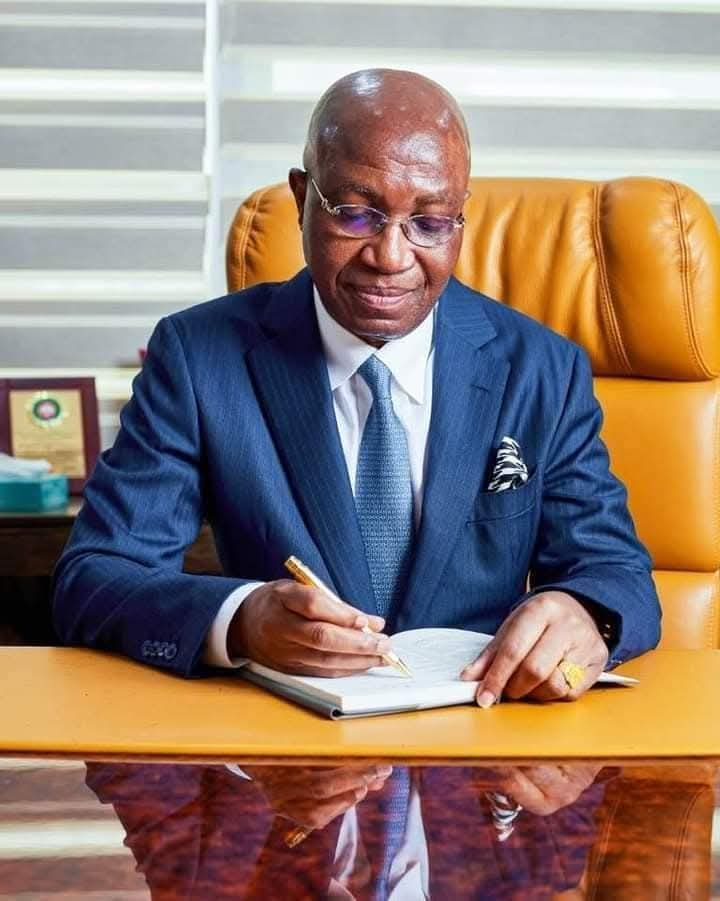
Senior Advocate of Nigeria (SAN), Wole Olanipekun, and Chairman of the Presidential Fiscal Policy and Tax Reforms Committee, Taiwo Oyedele, have called on South-West governors and political leaders to fully leverage President Bola Tinubu’s administration to drive accelerated development across the region.
The duo made the call on Monday in Akure, Ondo State capital, while speaking at a public lecture organised as part of activities marking the 50th anniversary of Ondo State’s creation.
They stressed that the South-West must prioritise massive investments in infrastructure, industrialisation, and economic reforms during Tinubu’s tenure to secure long-term regional prosperity.
Olanipekun cautioned that the political advantage of having a South-West president is temporary, noting that President Tinubu’s tenure will come to an end after his second term in 2031.
According to him, the region must act decisively within this window to strengthen its economic base and ensure sustainable development beyond the current administration.
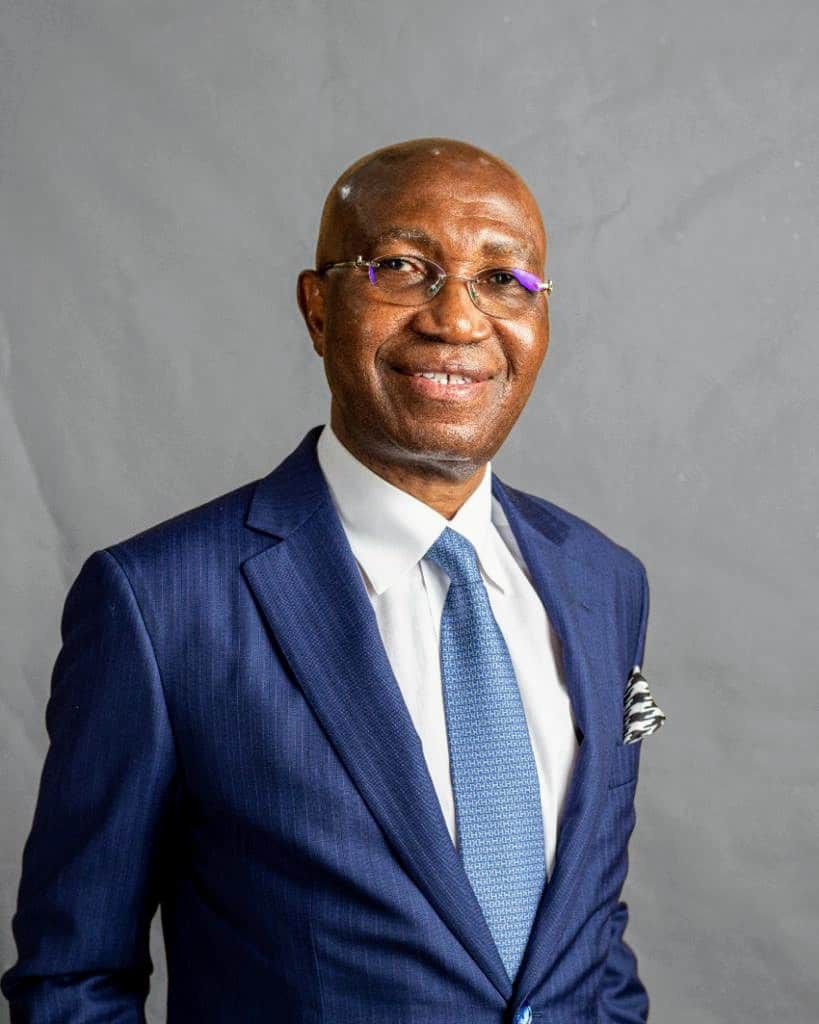
News
BREAKING: Malami Tells Court He Earned ₦12bn+ Legitimately, Seeks Release of Seized Properties
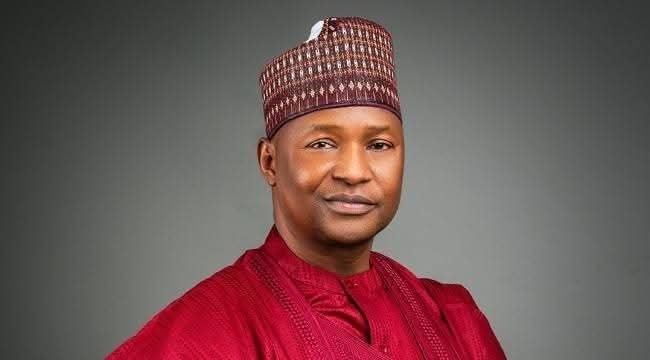
Former Attorney-General of the Federation, Abubakar Malami (SAN), has disclosed details of his earnings while asking a Federal High Court in Abuja to set aside an interim order authorising the seizure of 57 properties allegedly linked to him.
Malami made the disclosure through his counsel, Joseph Daudu (SAN), in a motion on notice filed before the court. The application seeks to vacate an interim forfeiture order affecting three of the 57 properties currently under investigation by the Economic and Financial Crimes Commission (EFCC).
According to the court filing, Malami stated that he had fully and transparently declared his sources of income in his asset declaration submitted to the Code of Conduct Bureau (CCB).
The document outlined multiple income streams, including:
₦374.63 million earned from salaries, estacodes, severance allowances, and related entitlements.
₦574.07 million generated from the disposal of personal assets.
₦10.01 billion recorded as turnover from private business ventures.
₦2.52 billion issued as loans to various businesses.
₦958 million received as traditional gifts from personal friends.
₦509.88 million realised from the launch and public presentation of his book titled “Contemporary Issues on Nigerian Law and Practice: Thorny Terrains in Traversing the Nigerian Justice Sector – My Travails and Triumphs.”
Malami’s legal team argued that the declared earnings sufficiently explain the source of funds used to acquire the properties in question, urging the court to lift the interim seizure order.
The matter remains pending before the Federal High Court as the EFCC continues its forfeiture proceedings.
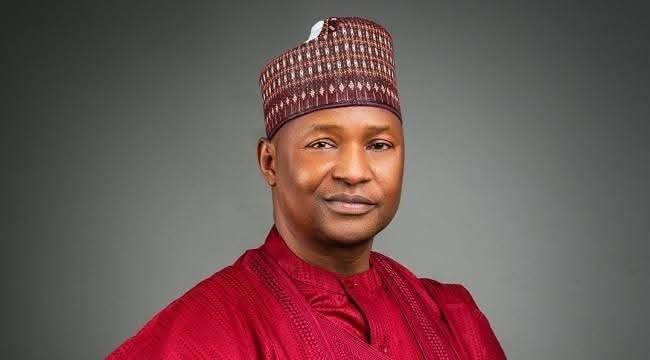


News
MAN Urges Federal Government to Stop NAFDAC’s Sachet Alcohol Ban, Warns of ₦1.9 Trillion Loss
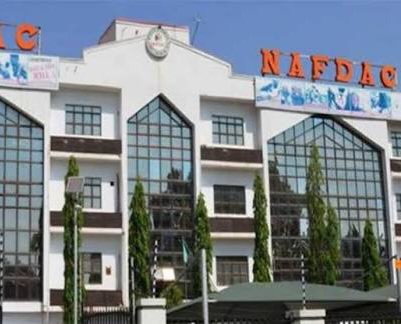
The Manufacturers Association of Nigeria has appealed to the Federal Government to restrain the National Agency for Food and Drug Administration and Control from proceeding with its ban on alcoholic beverages packaged in sachets and small PET bottles, warning of catastrophic economic consequences.
In a statement issued by Director-General Segun Ajayi-Kadir, MAN described NAFDAC’s renewed enforcement action as detrimental to indigenous industrial operators and fundamentally inconsistent with earlier government directives.
The manufacturers’ body emphasized that NAFDAC’s recent move directly contradicts the House of Representatives resolution dated March 14, 2024, which specifically restrained the agency from implementing the punitive ban following comprehensive stakeholder consultations through a public hearing.
“Rather than abiding by the generally agreed resolution, NAFDAC bided its time and chose to rely on a resolution of the Senate that was devoid of the usual stakeholders’ engagement,” Ajayi-Kadir stated, noting that operators now face confusion over conflicting directives from different arms of government.
MAN warned that enforcing the ban would devastate Nigeria’s manufacturing sector, threatening over ₦1.9 trillion in existing investments and triggering the retrenchment of more than 500,000 direct employees alongside approximately five million workers in the indirect value chain.
The association cautioned that the restriction would paradoxically undermine public health by creating market opportunities for illicit, substandard and unregulated products beyond the control of regulatory authorities.
“This is counterproductive as it will open up the market for illicit, sub-standard, and unregulated products. It will lead to an influx of imported alternatives, mostly smuggled. It will deny the government of revenues collectable from the companies,” Ajayi-Kadir declared.
The manufacturers’ group emphasized that alcohol served in sachets by local producers is manufactured under hygienic conditions and certified by regulatory agencies including NAFDAC itself, making the ban particularly contradictory.
MAN also challenged the untested assertion that sachet alcohol drives underage consumption, citing credible and empirical research that contradicts this claim. The industry has independently invested over ₦1 billion in nationwide media campaigns promoting responsible alcohol consumption and discouraging underage abuse.
The association stressed that banning certified products would deny adult consumers with limited budgets access to regulated alcoholic beverages while simultaneously depriving the government of substantial tax revenues.
Food, Beverages and Tobacco Senior Staff Association and National Union of Food, Beverages and Tobacco Employees have joined MAN in opposing the ban, demanding that NAFDAC provide empirical evidence that sachet alcoholic beverages are being consumed by children.
Labor unions have called for the suspension of NAFDAC Director-General Professor Mojisola Adeyeye, accusing her of siding with multinational companies to undermine local manufacturers.
However, NAFDAC has maintained its position, with Adeyeye insisting that enforcement is backed by law following the Senate’s unanimous resolution setting a December 2025 deadline that has now passed.
The NAFDAC chief argued that the proliferation of high-alcohol-content beverages in sachets has made such products easily accessible, affordable and concealable, contributing to widespread misuse and addiction among minors and commercial drivers.
“This public health menace has been linked to increased incidences of domestic violence, road accidents, school dropouts, and social vices across communities,” Adeyeye stated, describing the ban as protective rather than punitive.
In contrast, civil society organization Socio-Economic Rights and Accountability Project has approached the Federal High Court in Lagos seeking injunctive orders to prevent the Federal Government from interfering with NAFDAC’s statutory powers to enforce the ban.
SERAP argues that continued circulation of sachet alcohol violates the National Health Act 2014, the NAFDAC Act and international commitments under the World Health Organization’s Global Strategy to Reduce Harmful Use of Alcohol.
The legal and economic battle over sachet alcohol highlights deeper tensions between public health regulation, economic survival and stakeholder consultation in Nigeria’s policymaking process, with no clear resolution in sight as multiple court cases and regulatory actions unfold simultaneously.
-

 News2 years ago
News2 years agoHardship: We Plan To Establish A National Commodity Board To Crash Food Prices – VP Shettima
-
News8 years ago
Blog Reader; Samson Osagiede Celebrates Fiancè Benedicta Daniels’s Birthday With Sweet Words
-
Home9 years ago
News Channel claims Donald Trump is an orphan from Pakistan,share alleged childhood photo
-
Home9 years ago
Another $175m Found in Patience Jonathan’s wife’s firm’s Bank Account
-
Home9 years ago
Oil Spillage: House of Reps Member Shares Photos of the Water her Constituents Drink .
-
Home9 years ago
Zara Buhari & Ahmed Indimi’s Wedding Access Card
-

 Sport7 years ago
Sport7 years agoModric, Marta Wins 2018 FIFA Best Player Of The Year Awards ⚽️
-
News8 years ago
The Best Video You’ve Seen Today?

